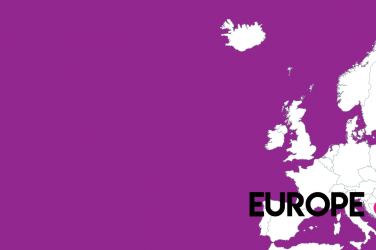The Super League is dead. For now. What is well alive, however, is the intent of big financial players to advance the commercialisation of football. E&M staff writer Eden Lutz gives us her explanation as to why the idea of the Super League was killed so quickly and why the danger of increasing elite power, on the other hand, is not over yet.
Quite unbelievably, only a week has passed since twelve prominent European football clubs announced and came back on their decision to establish a Super League. It took 48 fever dreamlike hours for the project – that had supposedly been in the works for years – to be suspended indefinitely, flailing and crashing to the ground in a manner so spectacular that it rivalled Icarus himself. The toxic concoction of hubris (“We’re doing this to save football”), incompetence, and most importantly, greed, that the owners of the breakaway clubs attempted to force down the throat of the football world was violently hurled up by fans and promptly flushed down the toilet by national and international football associations.
Perhaps the most shocking about the initiative was how unsurprising it really was. Over the past decades, the financialization of football has transformed the game, turning clubs from non-profit to profit-making enterprises, with wages and transfer fees skyrocketing. TV deals grew ever more lucrative and UEFA’s Financial Fair Play (FFP) regulations were introduced to ensure the economic sustainability of football clubs, attracting a wide array of private majority investors. Bigger clubs have successfully been using their power to claim the larger share of this influx of cash, translating it to actual sporting achievements (except for Tottenham), again increasing their funds and their power, creating a perverted vicious circle. An oft cited example is that of Manchester City (currently leading the Premier League table), which was transformed after its 2008 takeover by Sheikh Mansour, who invested some 1.3 billion pounds into the club during his first ten years of ownership.
The Super League oligarchic wet dream is a lot closer to reality than some would like to admit – which is why UEFA and FIFA’s bellicose reflexes to the announcement seemed so hypocritical, with their utterly meaningless war cry ‘football is for the fans’.
As a result, financial disparity between clubs and between national leagues has grown exponentially. The Champions League, which distributed 1.95 billion euros between the participating clubs in the 2019-2020 season, has come to be dominated by the usual suspects, with only two wins for clubs that do not hail from the five biggest leagues (England, Spain, Germany, France and Italy) since its 1993 redesign. The upcoming changes to its format that were announced amidst all the consternation last week are expected to only fuel this imbalance. The Super League oligarchic wet dream is a lot closer to reality than some would like to admit – which is why UEFA and FIFA’s bellicose reflexes to the announcement seemed so hypocritical, with their utterly meaningless war cry “football is for the fans”. If only a tenth of the resources spent on protecting their own interests during the past week would have been dedicated to the fight against the endemic racism that plagues the game, or, you know, not organising tournaments that cost over 6500 migrant workers’ lives, those words might have had a little more weight.
It is impossible to ignore the parallel between these developments and those in the “real world” from which football supposedly provides some sort of escape. The gap between rich and poor countries, as well as between rich and poor people, continues to grow. The pandemic has further exposed and exacerbated the immensely unequal distribution of wealth and power that has come to define our daily realities. Oxfam reported in December 2020 that the 10 richest people in the world had accumulated over 400 billion dollars since the start of the crisis, while in the same period, the amount of people living in poverty had increased by an estimated 200 to 500 million. Moreover, as we have written in March, global vaccine distribution is governed by profit, rather than health concerns and solidarity – protecting the financial interests of a few pharmaceutical giants at the expense of millions of lives in the Global South. As a Dutch political scientist pointed out, the Super League is a resounding example of a thesis that economist Joan Robinson already put forward in 1933 (!) with her revolutionary work on imperfect competition: firms will do anything in their power to protect themselves against the uncertainty of competition, rendering most if not all capitalist realities oligopolistic. A closed league would be the final stage in the process of financialization in football, in which clubs are run wholly for-profit: guaranteed returns on investment, without being dependent on such trivial matters as whether your star players can do it on a cold rainy night in Stoke.
A closed league would be the final stage in the process of financialization in football, in which clubs are run wholly for-profit: guaranteed returns on investment, without being dependent on such trivial matters as whether your star players can do it on a cold rainy night in Stoke.
The closed league element was exactly what angered supporters across Europe the most, eliciting the fiercest protests from the fan bases of the participating clubs from England. Supporters of Tottenham and Arsenal (currently 7th and 10th in the Premier League) ridiculed the pretense that they deserve to be counted amongst “Europe’s leading football clubs”. Perhaps the most important oversight (amongst many, many more) of their breakaway owners is that football is about losing so much more than winning. It is understandable that someone like Andrea Agnelli, chairman of Juventus, head of one of the richest families in Italy and Super League initiator, would prefer to deny the likes of Ajax, Olympique Lyon and FC Porto the opportunity to eliminate his club from a European competition (as they have in 2019, 2020 and 2021 respectively). Unfortunately for him, most people who watched those games are not billionaires who think that accumulation of wealth (or rather, debt) entitles them to the right to change the rules at half time so that they can hold on to it. To see that, they could just turn on the news.
Football (as an industry), much like capitalism, has been sustained by a powerful myth stemming from biblical times: it is no coincidence that David and Goliath are enthusiastically invoked by commentators whenever there is an underdog to root for. The eternal promise that small can conquer big, win against all odds, go from rags to riches, and any other meritocratic cliche that you can think of. The colossal mistake that the Super League initiators made was breaking that promise – and I am glad they did. It unearthed frustrations about a development that has been going on for a long time, both in football and beyond, in Europe and beyond. These responses are ultimately hopeful in their success, although sometimes misdirected (the focus on the “foreignness” of club owners comes to mind, as if greed were imported here from America and the Gulf instead of the other way around). A more cynical person would argue that this victory is merely a stay of execution, that these interconnected patterns of disparity are irreversible, and they might be right. Personally, I am not ready to lose my faith that Ajax will win the Champions League again some day, so I also remain convinced that a better, more equal world is possible. Some day.







